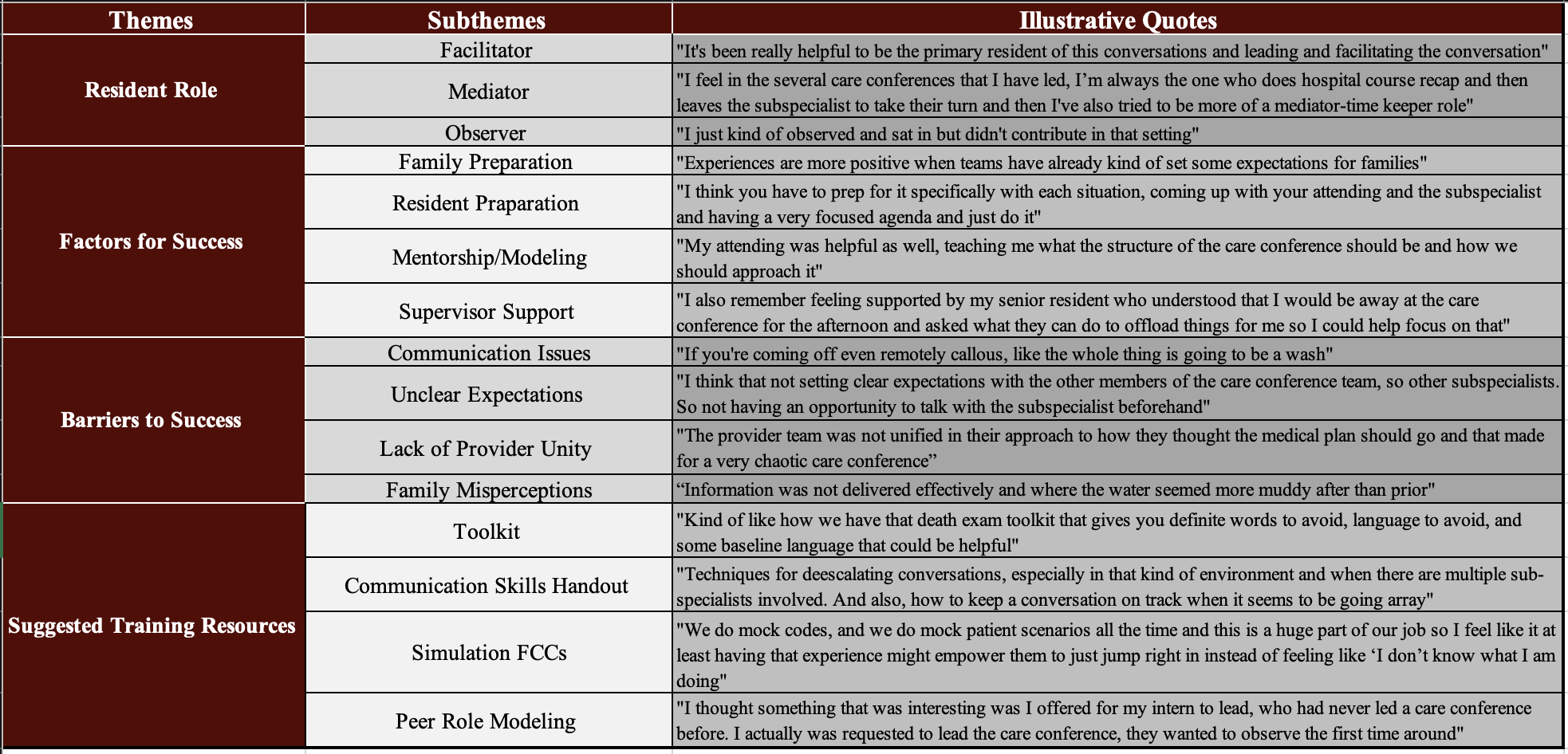Hospital Medicine 4: Medical Education
Session: Hospital Medicine 4: Medical Education
157 - From Training to Practice: Pediatric Residents' Insights on Effective Family Care Conferences
Sunday, April 27, 2025
8:30am - 10:45am HST
Publication Number: 157.4890
Lakshmeeramya Malladi, Stanford University School of Medicine, Palo Alto, CA, United States; Lynne Huffman, Stanford University School of Medicine, Palo Alto, CA, United States
- LM
Lakshmee Malladi, MD (she/her/hers)
Chief Resident
Stanford University School of Medicine
Palo Alto, California, United States
Presenting Author(s)
Background: As inpatient pediatric populations become more medically complex, family care conferences (FCCs) become more important in providing clear family-centered communication between families and clinicians. A primary needs assessment of pediatrics residents at a single academic institution emphasized that, while residents agree that leading inpatient FCCs is a very important clinical skill, most have not received formal training in this advanced communication skill. This highlighted the need to understand more about the benefits that residents gain from leading FCCs, barriers that discourage them from assuming the role of FCC leader, and possible training modalities that could strengthen FCC leadership skills. We chose a qualitative approach via focus groups to further explore the resident experience of FCC leadership.
Objective: 1. To understand what roles residents have held in leading FCCs
2. To identify factors that allow residents to feel successful in leading FCCs
3. To evaluate barriers that may discourage residents from leading FCCs
4. To understand training resources that could facilitate resident preparation for FCC leadership
Design/Methods: Several IRB-approved focus groups of self-selected Stanford pediatrics residents were conducted at Stanford Medicine Children’s Health. Sessions were divided by training level (PGY1-PGY3). We asked questions about resident experiences in and attitudes towards leading FCCs. We recorded, transcribed, and de-identified participant responses. Subsequently, we performed qualitative thematic analysis using modified grounded theory (an inductive approach).
Results: Thirteen pediatrics residents participated in the focus groups: 3 PGY3s, 6 PGY2s, and 4 PGY1s. Each training-level session reached content saturation. Thematic analysis revealed that residents have routinely held one of 3 primary roles during FCCs: facilitator, mediator, or observer. Family preparation, resident preparation, mentorship, and supervisor support were emphasized as contributing to success in trainees leading FCCs. Several barriers to success were identified; these included interpersonal communication issues, unclear initial expectations, and families’ misperceptions of which clinician was leading the FCC. Across all training levels, residents suggested areas for further training; these included a toolkit, communication skills handouts with essential frameworks for delivering difficult news, simulated FCCs, and role modeling from peers.
Conclusion(s): Altogether, the themes and information gathered from the focus groups suggest productive avenues for FCC leadership curriculum development.
Table 1. Themes Identified from Pediatrics Residents' Perceptions of Leading FCCs


